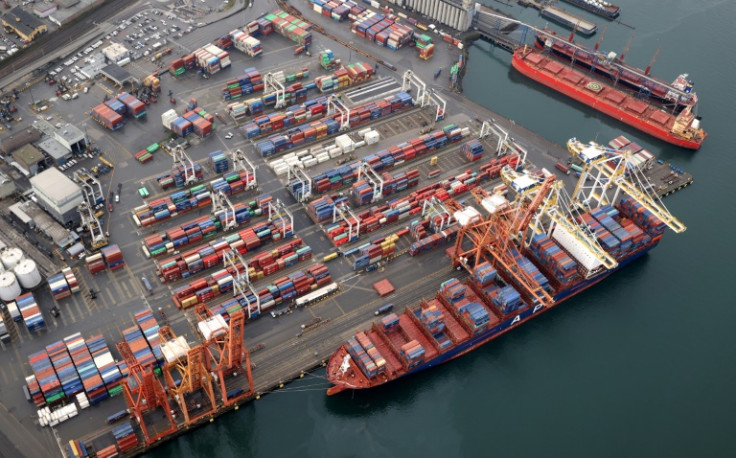Canadian Strike Highlights Problems With Just-in-time Delivery

KEY POINTS
- The International Longshore and Warehouse Union Canada is striking over wages and automation fears
- The British Columbia Maritime Employers Association has accused the ILWU Canada of trying to "aggressively expand" its control
- The strike is threatening Canada's economy and businesses using just-in-time logistics
A strike by the International Longshore and Warehouse Union Canada entered its 12th day on Wednesday with few signs of a settlement in sight.
The 7,400 members of the union currently striking hail from 30 different ports in Canada, including Port of Vancouver and Port of Prince Rupert — two of the three largest ports in the nation and key pipelines to the U.S.
In total, the affected ports process "$800 million in critical cargo," which comprises "25% of Canada's total traded goods" every day, according to the British Columbia Maritime Employers Association, the company the ILWU Canada is striking against.
In BCMEA's comment to the International Business Times, the group accused ILWU Canada of trying to "aggressively expand their jurisdiction." It also said in a press release the strike has "disrupted $7.5 billion of cargo" including "automotive parts, refrigerated food, fertilizer, critical minerals, commodities and goods" through the first 10 days of the strike.
These disruptions not only impact Canadian businesses, but also businesses abroad that rely on Canada's natural resources.
As this strike continues, ILWU Canada held a rally at Jack Pool Plaza in downtown Vancouver on July 8th and 9th. During the rally, Pat Bolen, first vice-president for the ILWU Canada, told the crowd that "we've stood up and said enough is enough, this is where the line in the sand is drawn."
"We are not asking for wages that are unrealistic," Bolen said.
While ILWU Canada did not respond to a request by the IBT for comment, Rob Ashton, the union's president, also spoke at the rally.
"We do not want to negotiate in the media," Ashton said, "We do not want the federal government to get involved in our business.
"We must force them to the table, we must tell them to come to the table and negotiate, not legislate."
With the total disruption to businesses caused by the strike, one of the main problems appears to be the system used by many businesses — just-in-time delivery. The new delivery system, according to an April article published by North Carolina firm Kanban Logistics, is when "materials are kept off-site and delivered to the manufacturer precisely when they are needed."
This has replaced just-in-case delivery systems, where every item the manufacturing operation could require is kept "on-hand by the manufacturer 'just in case' it was needed," which is very expensive.
Because just-in-case increased in costs as companies grew, there was a transition to just-in-time, which created its own problems. Since companies no longer keep what they need for "just-in-case," they are more susceptible to supply chain issues.
The current strike is creating a supply chain issue by slowing down the rate at which supplies can be transferred to and from companies.
Similar supply chain issues were seen during the pandemic, however, companies have adapted. Kanban Logistics suggests adapting by making just-in-time a part of the system rather than the whole thing.
Instead of storing the necessary materials in manufacturing centers, vendor warehouses can keep an inventory of vital material to manufacturers and deliver them as needed, creating a middle-man for the necessary supplies.
So far, the cost of the strike is only estimated, but with Canada largely on a just-in-time delivery system, the damage can be exponential. Each day of shipping delay requiring a week to catch-up, Jeff English, vice-president of Canadian agriculture industry group Pulse Canada, said in a July 6th interview with Reuters.
With no end in site, the damage of the strike could have long-term effects not only on the Canadian and global economies, but on Canada's reputation with international businesses.
© Copyright IBTimes 2024. All rights reserved.





















